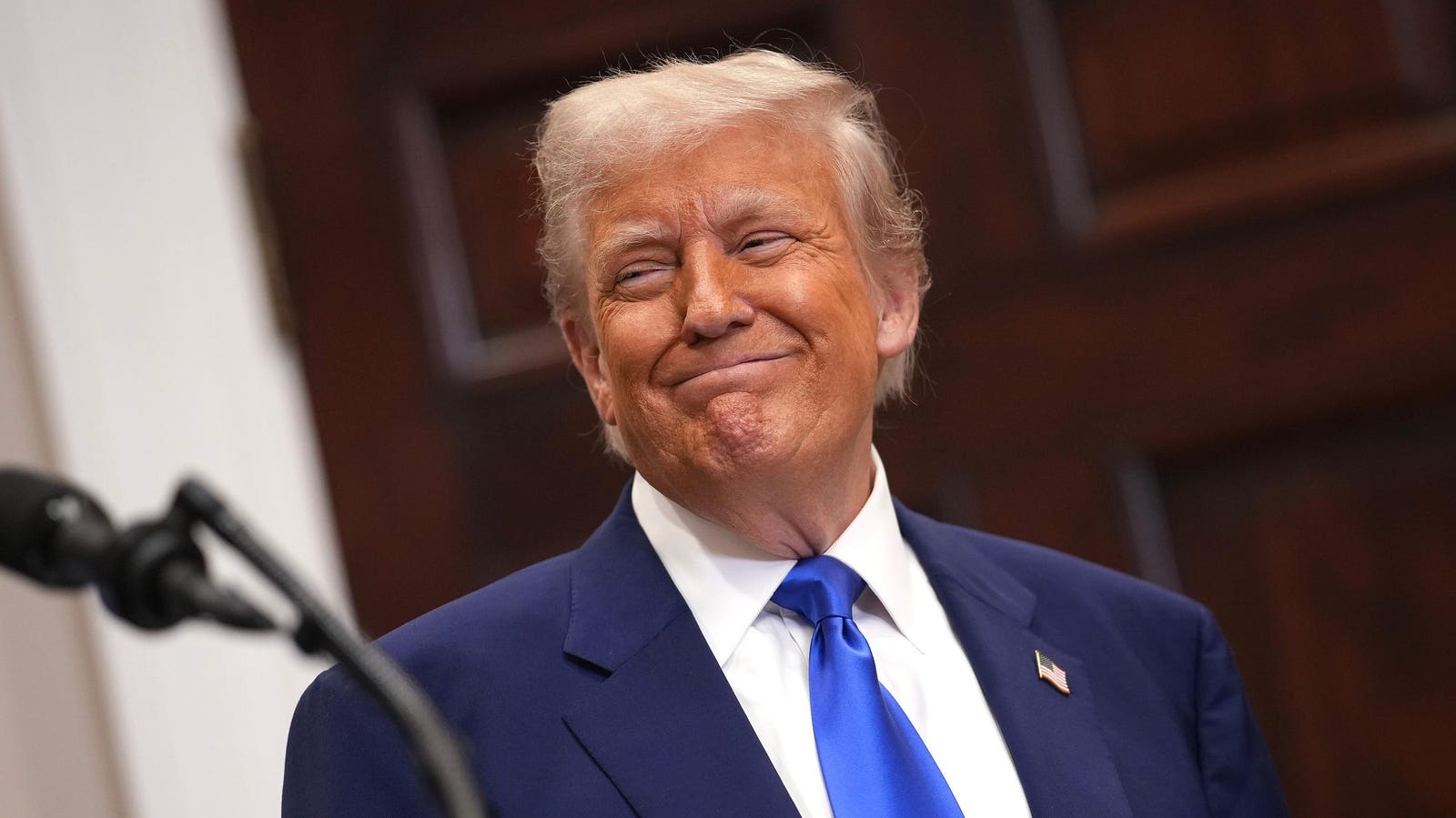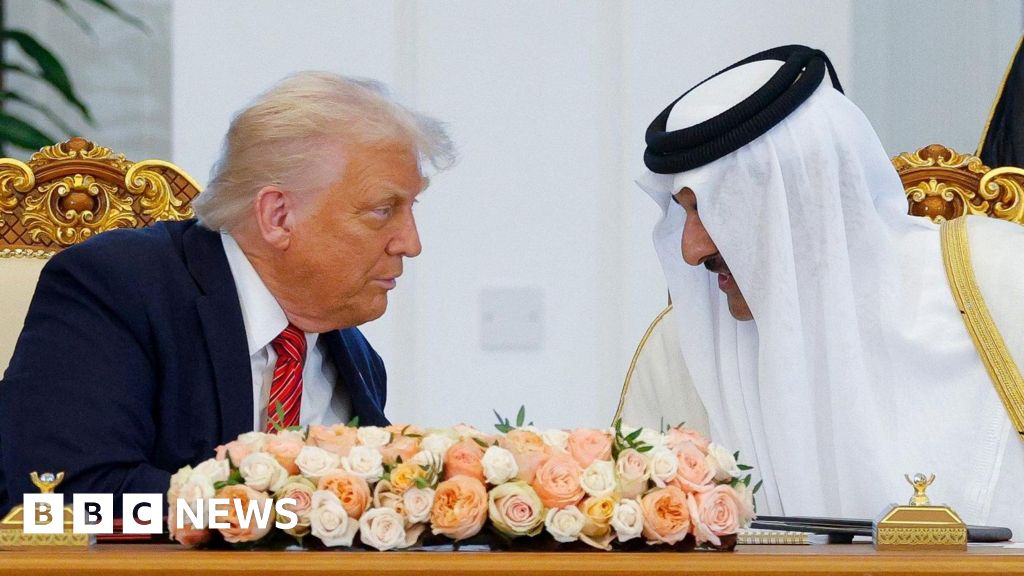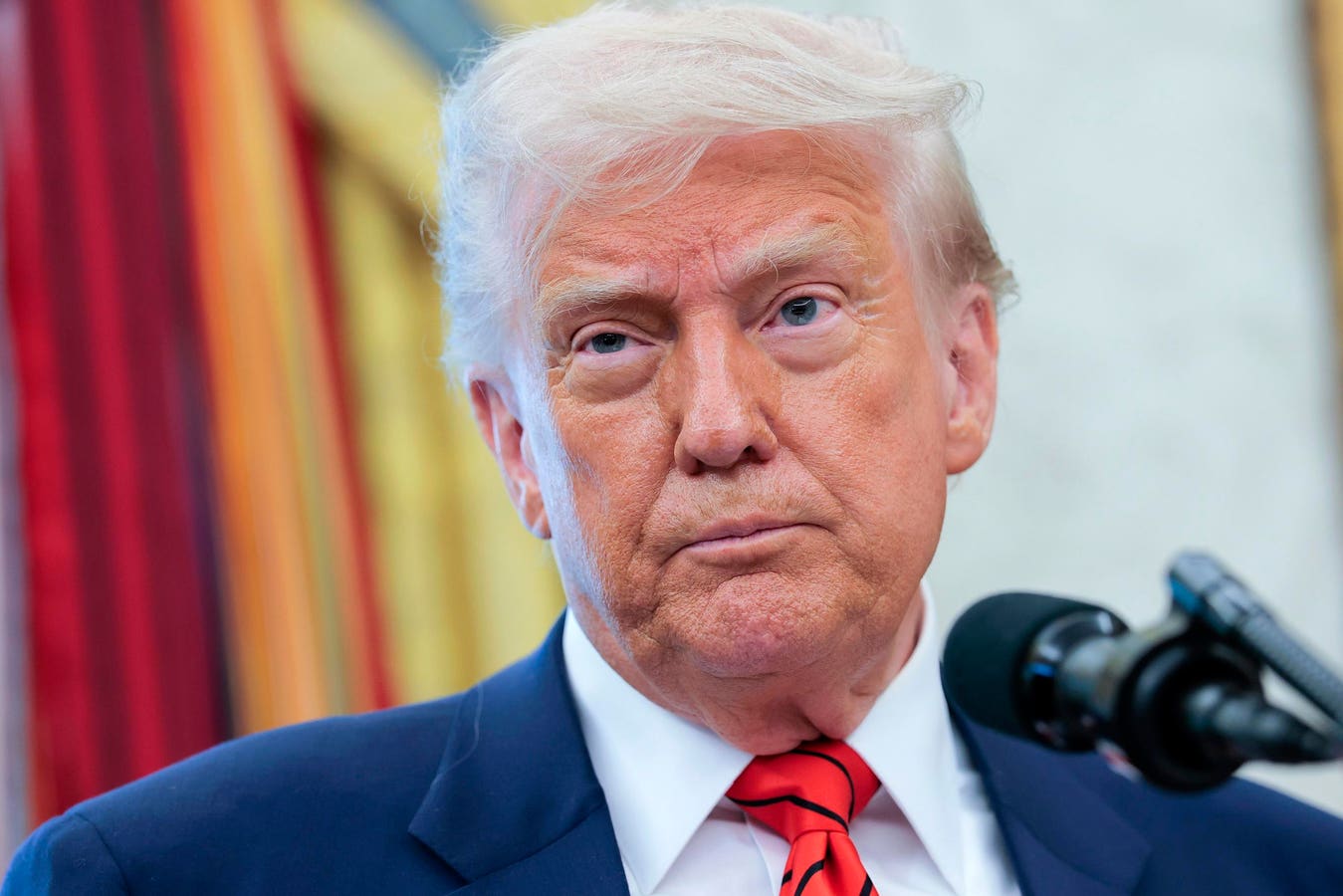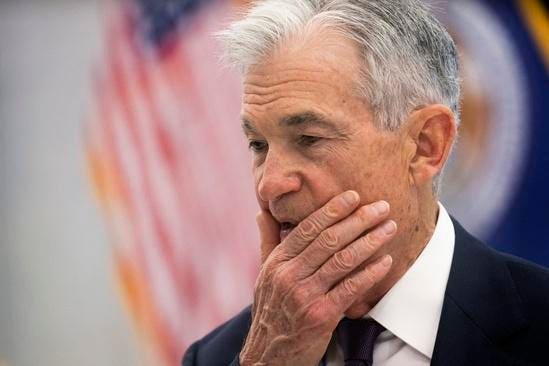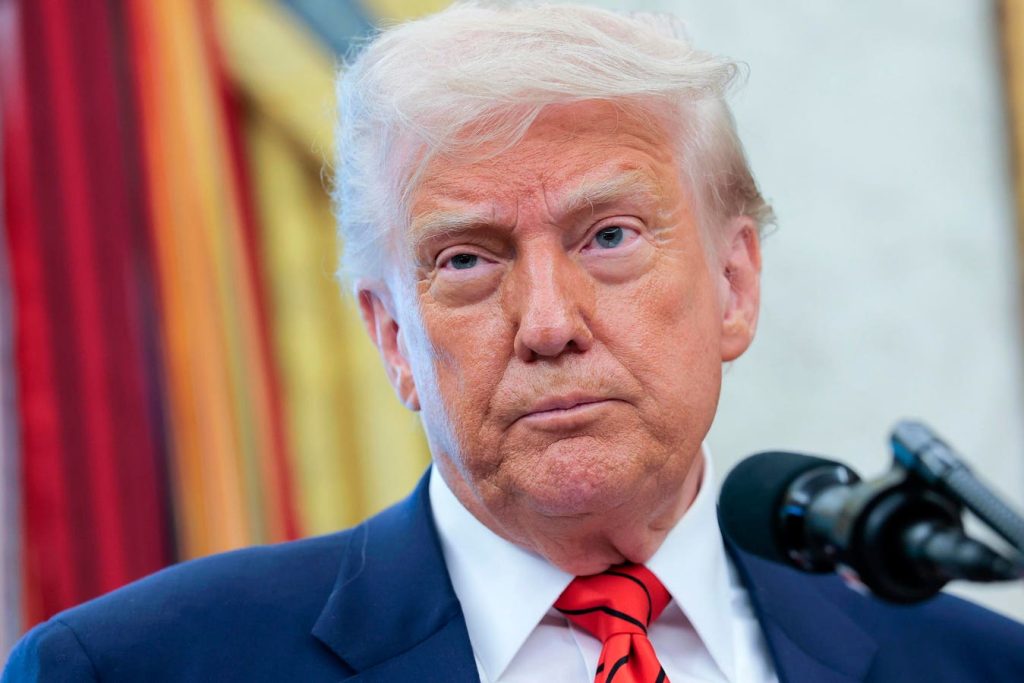Topline
Georgia taxpayers could be on the hook for millions of dollars of President Donald Trump’s legal fees from the racketeering trial that saw Fani Willis tossed from the case, after Gov. Brian Kemp (R) signed a bill into law this week that allows criminal defendants to recover attorneys fees if the prosecutor overseeing their case is disqualified.
President Donald Trump looks on during a press conference on May 12 in Washington, DC.
Key Facts
Willis, the Fulton County District Attorney who charged Trump and others for his efforts to overturn the 2020 election, was disqualified from the case due to alleged misconduct in having a romantic relationship with prosecutor Nathan Wade, though the Georgia Supreme Court still could overturn the ruling.
Attorney Steven Sadow, who represents Trump in the Georgia case, told Forbes in a statement Friday that Kemp’s decision to sign the bill into law “represents a major turning point in holding unethical, opportunistic and deceitful prosecutors accountable for their misconduct,” but the lawyer did not respond to questions regarding whether he would seek to use the law to recoup Trump’s costs, or how much the president could ask to have reimbursed.
Kemp signed Senate Bill 244 into law on Wednesday, which states criminal defendants are “entitled to an award of all reasonable attorney’s fees and costs incurred” if the prosecutor overseeing the case against them is disqualified due to misconduct, and the charges against the defendant are subsequently dismissed.
Georgia state Sen. Bradley Beach, who sponsored the legislation, said he was specifically motivated by Trump’s case to back the bill, the Atlanta Journal-Constitution reports.
Any costs reimbursed to defendants will be paid for by the district attorneys’ office that prosecuted the case, which means taxpayer funds in Fulton County, Georgia, would be used to recoup Trump’s legal costs, though the charges against him would need to be dismissed for him to pursue reimbursement.
What Happens Next In Trump’s Georgia Case?
Willis appealed the ruling disqualifying her to the Georgia Supreme Court in December, but the court still has not yet ruled on whether it will take up the case. If the high court doesn’t hear the case, or if it does and agrees Willis should be disqualified, that won’t necessarily kill the case against Trump and his allies, though it will make it significantly harder for it to move forward. The executive director of the Prosecuting Attorneys’ Council of the State of Georgia will then have to appoint a new prosecutor to oversee the case, a process that could take years to complete. That prosecutor could then either proceed with the case, or decide to have the charges dropped altogether. If the case does move forward—either with Willis or another prosecutor—it’s still all but certain Trump would not go to trial until after he leaves office in 2028, and the president has already asked for his charges to be dismissed due to his election to the White House. The charges against him would need to be dismissed entirely for Trump to seek attorneys fees under Senate Bill 244.
Who’s Paying Trump’s Legal Fees Now?
While Georgia taxpayers may ultimately foot the bill for Trump’s Georgia case, the billionaire president hasn’t been using his own personal funds to pay his lawyers in the meantime. To pay his legal bills while he was out of office, Trump used his political action committee Save America, which relied on donations from political supporters, as the Trump campaign routed a percentage of campaign donations to the PAC. Save America still had $6.4 million in cash on hand as of the end of 2024, but it’s unclear how the fund is operating now that Trump has taken office and whether it’s still being used for the president’s legal fees. The PAC has not yet filed any disclosures since his inauguration. Many private attorneys representing Trump whom the president previously paid through Save America now have jobs within his administration, including now-U.S. Attorney Alina Habba, Deputy Attorney General Todd Blanche and Solicitor General Dean John Sauer.
Big Number
$4.2 million. That’s how much Trump has paid attorneys representing him in the Georgia case through the end of 2024, according to public filings. The president paid a combined $2.7 million to Sadow and attorney Drew Findling, who resigned from the case in August 2023, prior to Trump’s formal indictment. Trump also paid attorney Jennifer Little $1.5 million through a separate fund he used for campaign and personal expenses, Make America Great Again PAC.
Key Background
The Georgia case was one of four criminal cases that were brought against Trump in the years after his first term, and one of two specifically concerning his efforts to overturn the 2020 election. Willis indicted Trump in August 2023, accusing him and his allies of participating in an alleged racketeering scheme to overturn Georgia’s election results. Trump has pleaded not guilty to the charges against him. The case is now the only one of Trump’s criminal cases that remains active, as the two federal cases against the president were dropped due to the Justice Department’s policy of not prosecuting sitting presidents. Trump was convicted in Manhattan on 34 felony counts of falsifying business records—the only case against him to go to trial—but did not receive any punishment for his crimes, thanks to his election.
Further Reading
ForbesFani Willis Disqualified In Trump Georgia Case—Here’s What Happens NextBy Alison Durkee
ForbesHere’s Who’s Made The Most Defending Trump In CourtBy Alison Durkee
ForbesTrump Fundraising Group Routed $7 Million To Cover His Legal Bills Last QuarterBy Alison Durkee
ForbesThese Billionaires’ Donations Will Pay Trump’s Personal Legal BillsBy Alison Durkee
ForbesTrump’s Legal Fund Is Running Out Of Cash — Here’s How Big Donors Could Still Pay His BillsBy Alison Durkee

